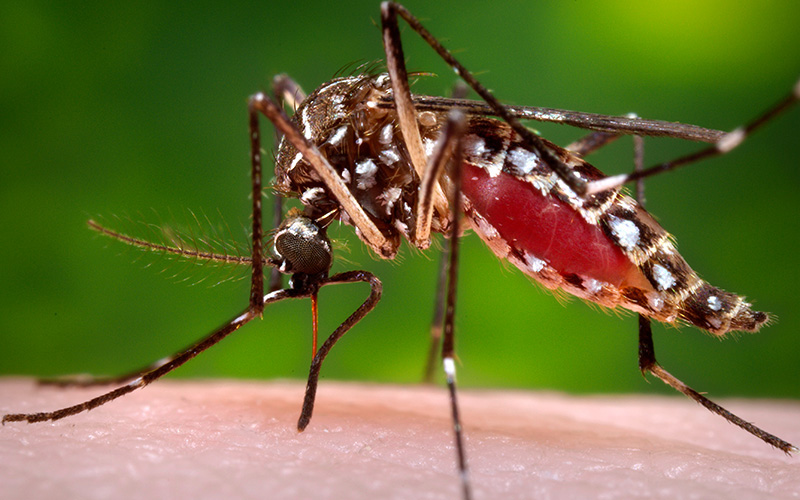- Slug: BC-CNS-Flinn Wins,550
- Video stories on bug zapper and brain game available.
- Photo available (thumbnail, caption below)
By ALEXA ARMES
Cronkite News
PHOENIX – What does a bug zapper and a brain game have in common?
The Flinn Foundation, a private philanthropic organization, recently announced its seven early-stage bioscience award winners. The foundation will provide $30,000 each in funding support and program services to help these companies grow as part of the Flinn Foundation Bioscience Entrepreneurship Program.
Here’s a look at two of the award winners:
Phoenix Interface Technologies
Tempe-based Phoenix Interface Technologies has created a way to help eliminate disease-spreading and crop-damaging insects while sparing the beneficial ones.
The Solar Rid device is essentially a modern day bug zapper. It uses five sensory outputs – such as sound, smell and sight – to attract specific insects like mosquitos, corn earworms and navel orangeworms.
The device runs on solar power. Creator Tom Brown said the machine may help decrease the amount of pesticides sprayed on crops.
“Just think of the advantages – instead of spraying these poisons across this whole wide area, you can have the insects come to you, then you’re only killing in this little tiny spot, instead of spraying deadly stuff across acres and acres and acres,” Brown said.
Officials with Maricopa County’s vector control department, which sprays for insects, said they only use about 1 teaspoon of pesticide per acre to keep mosquitos and other insects from harming crops and spreading disease.
The Solar Rid device can attract and kill bugs in a 10-acre area, Brown said.
SMART Brain Aging
SMART Brain Aging has taken a new approach to the fight against dementia. Founder Dr. John DenBoer works with his patients to keep the brain active by doing things they have never done before.
DenBoer stresses that giving them new and novel tasks is essential.
“By keeping our brain really active, what we’re able to do is help release a chemical in the brain or a series of chemicals within the brain,” DenBoer said. “What this does is help prevent the brain from shrinking at an abnormally fast rate.”
The program is designed for people 65 and older, and patients are paired with a coach for one-on-one activities.
SMART stands for Strategic Memory Alzheimer’s Rehabilitation Therapy. The program doesn’t cure dementia, but company officials said this approach can slow the process from a rapid deterioration to a more gradual decline.
SMART Brain Aging offers online courses for clients looking to find help outside the clinic and get in some extra activity.
Other winners
Since 2014, the Flinn Foundation has allocated $645,000 in grants to local nonprofits to provide funding and services to 22 bioscience firms, according to a news release.
This year’s other winners include:
Biosensing Instrument: This Tempe-based company designs instruments to analyze molecular interactions based on Surface Plasmon Resonance, a technique used across the life sciences and nanotechnology applications, according to the release.
BMSEED: This Phoenix-based company, which stands for BioMedical Sustainable Elastic Electronic Devices, uses stretchable gold films for its products, which have biomedical applications, including those that require soft and stretchable solutions like cells, tissue or skin.
Iron Horse Diagnostics: This Scottsdale-based company is developing a diagnostic test to rapidly determine if a patient has Lou Gehrig’s disease. The firm also is working on a test to detect and monitor brain injury and concussion.
Poba Medical: This Flagstaff-based medical device company provides engineering expertise in thermoplastic balloons.
Reglagene: This Tucson-based startup uses DNA quadruplex science to regulate genes as part of the drug-discovery process, according to the release.
^__=
A Tempe company has developed a bug zapper that attracts disease-spreading insects, such as mosquitos. (Photo courtesy of Centers for Disease Control and Prevention)
